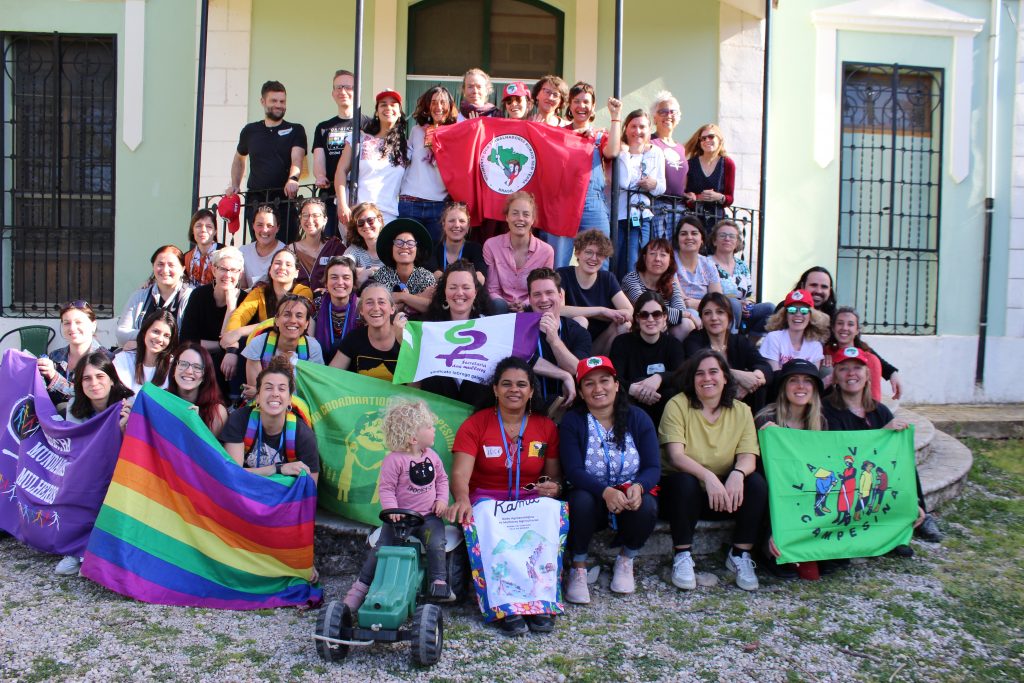Agroecology and intersectional feminism can be powerful allies in the fight for justice. When these two visions come together, they strengthen each other’s efforts and help fill gaps in advocacy and activism, making the push for justice more inclusive and effective.
Agroecology proposes a holistic and structural approach to food and farming, applying ecological principles and social equity into food production and beyond. Intersectional feminism deeply upholds that advancing the rights of women goes hand in hand with dismantling other systems of oppression.
Both intersectional feminism and agroecology dedicate extra attention to the power distribution in food production. On the farm, in the household, and in the farmers’ union, in the supply chains:- who decides what we eat, where it comes from and how much it costs?
Advancing agroecology and feminism definitely means better working conditions, fairer prices and protection from unfair trading practices. It means a stop to extractivism and exploitation pushed by the current corporate-led food system that is so omni-present in Europe.
Colonialism and land grabbing have been pushed by food security needs, so ensuring food security based on values such as cooperation, solidarity and human rights would be the agroecological feminist way to go. This also means giving a more central space to food producers, consumers and including more diverse stakeholders than the companies involved into decision-making processes.
Agroecology also considers our relationship to nature, and considers industrialised agriculture as a patriarchal, binary and a “power-over Nature” way of producing food. This includes how animals are often mistreated and considered a mere commodity. Additionally, technologies would be used to the benefit of those who produce and consume food, not to increase power, market-shares and control in the food chain.
Agroecology and feminism also mean access to healthy food that is rooted in local culture , with diverse food webs instead of transnational markets, food speculation, deforestation, dumping and widespread hunger.
Feminism in agriculture also means space for more horizontal, cooperative and participatory ways of organising farming life and openness towards more diverse family and relationship models, beyond the binary male-female division.
Many inspiring examples for this practice can be found in the SWIFT (Supporting Women-Led Innovations in Farming and Rural Territories) project. For this, we are bringing together 21 women-led innovations that are on the ground resisting, transforming and building agroecology and intersectional feminism and that lead the way for future shaping of agricultural policies. Those initiatives deserve attention, support and mainstreaming. They also deserve to operate in a context of equality, human rights and non-discrimination.
This project has received funding from the European Union’s Horizon Europe research and innovation
programme under grant agreement: 101084561 – SWIFT- HORIZON-CL6-2022-COMMUNITIES-









